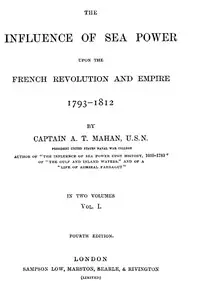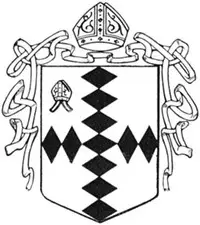"The Gulf and Inland Waters" by A. T. Mahan is a historical account written in the late 19th century. This work focuses on the naval operations that took place during the American Civil War within the vast network of Gulf and inland waters, particularly examining the strategic significance of the Mississippi River. The book aims to shed light on the complexities and challenges faced by the Union forces in their efforts to control these waterways and manipulate them for military advantage. The opening of this narrative establishes the geographical boundaries and importance of the region, commencing with a detailed description of the Gulf of Mexico and the Mississippi River. It emphasizes the necessary dual strategy employed by the National Government during the war: to navigate crucial river routes while enforcing a blockade along the coast. Mahan discusses the pivotal role of various naval figures, including the command structure and the fleet's composition, focusing on the early phases of naval engagement as fine details emerge concerning battles, ship types, and tactics. This sets the stage for a comprehensive exploration of the intense maritime conflicts that shaped the Civil War's course from both strategic and operational perspectives. (This is an automatically generated summary.)

The Gulf and Inland Waters The Navy in the Civil War. Volume 3.
By A. T. (Alfred Thayer) Mahan
"The Gulf and Inland Waters" by A. T. Mahan is a historical account written in the late 19th century. This work focuses on the naval operations that t...
Alfred Thayer Mahan was a United States naval officer and historian, whom John Keegan called "the most important American strategist of the nineteenth century." His 1890 book The Influence of Sea Power Upon History, 1660–1783 won immediate recognition, especially in Europe, and with the publication of its 1892 successor, The Influence of Sea Power Upon the French Revolution and Empire, 1793–1812, he affirmed his status as a globally-known and regarded military strategist, historian, and theorist. Mahan's works encouraged the development of large capital ships — eventually leading to dreadnought battleships — as he was an advocate of the 'decisive battle' and of naval blockades. Critics, however, charged him with failing to adequately explain the rise of largely land-based empires, such as the German or Ottoman Empires, though Mahan did accurately predict both empires' defeats in World War I. Mahan directly influenced the dominant interwar period and World War II-era Japanese naval doctrine of the "decisive battle doctrine" , and he became a "household name" in Germany. He also promoted American control over Hawaii though he was "lukewarm" in regards to American imperialism in general. Four U.S. Navy ships have borne his name, as well as various buildings and roads; and his works are still read, discussed, and debated in military, historical, and scholarly circles.


















